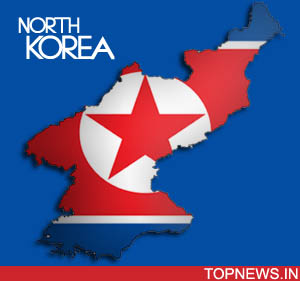North Korea firm on escalation course
 Seoul - South Koreans had hardly recovered from news of Saturday's suicide of former president Roh Moo Hyun, when they were shocked by their communist neighbour testing a nuclear device.
Seoul - South Koreans had hardly recovered from news of Saturday's suicide of former president Roh Moo Hyun, when they were shocked by their communist neighbour testing a nuclear device.
There may be no direct link between the death for the liberal former leader, who followed a determined policy of reconciliation with North Korea during his five-year term, and Monday's nuclear test.
However, the test once more reinforced the current tension prevailing on the Korean peninsula. Since the conservative government of President Lee Myun Bak took office in Seoul in February 2008, the days of "sunshine policy" for the communist regime in North Korea are over.
Many in the region fear a catastrophe is just around the corner, triggered by unpredictable action by the Pyongyang regime or the military.
North Korea's nuclear test, the country's second since October 2006, came not completely unexpected. Offended by being censored by the United Nations Security Council, Pyongyang withdrew from international talks to end its nuclear weapons programme, threw UN inspectors out of the country, vowed to restart its nuclear facilities and threatened further tests.
The UN body criticized a rocket launch by North Korea on April 5, which was widely regarded a cover for testing a long-range ballistic missile.
Still, officials in Seoul were surprised how quickly Pyongyang made good on its threats and again played its trump card.
"North Korea wants a speedy game," the Yonhap news agency quoted a high-ranking government official as saying. The Stalinist state wants to quickly create the best possible conditions for itself in the nuclear-weapons poker game, with the test the latest in a series of escalating steps by North Korea in the tug-of-war over its nuclear weapons programme.
Monday's explosion could lead to new, or strengthened UN sanctions against North Korea, with the Security Council set to negotiate a draft resolution on Tuesday. But new sanctions could push North Korea's regime to retaliate again, leading to ever-escalating tension in the region.
However, North Korea's nuclear arsenal, which experts can only guess at, is not regarded an immediate threat yet. US experts believe North Korea does not yet possess the technology to mount an advanced warhead on a ballistic missile, but Pyongyang may work on synchronizing its nuclear weapons and ballistic missile programmes and push the development of nuclear warheads for long-rang missiles.
With every test of a long-range ballistic missile or a nuclear device the country gets a step closer to its goals.
Analysts believe North Korea wants to prove that it does not issue empty threats with the regime determined to demonstrate strength to the outside world as well as the domestic sphere. Even more so as reports about obviously ailing health of "Dear Leader" Kim Jong Il throw open questions regarding the true power structures in Pyongyang.
At the same time, the suspicion mounts that North Korea never really intended to forego nuclear weapons, but wants to become a card-carrying member in the club of nuclear-weapons states. The main goal is to confront the United States on eye level.
The latest nuclear test made clear that North Korea intends "to undo all its denuclearization commitments which had been made at the six-nation nuclear disarmament talks during the past several years," the Korea Times newspaper argued.(dpa)
